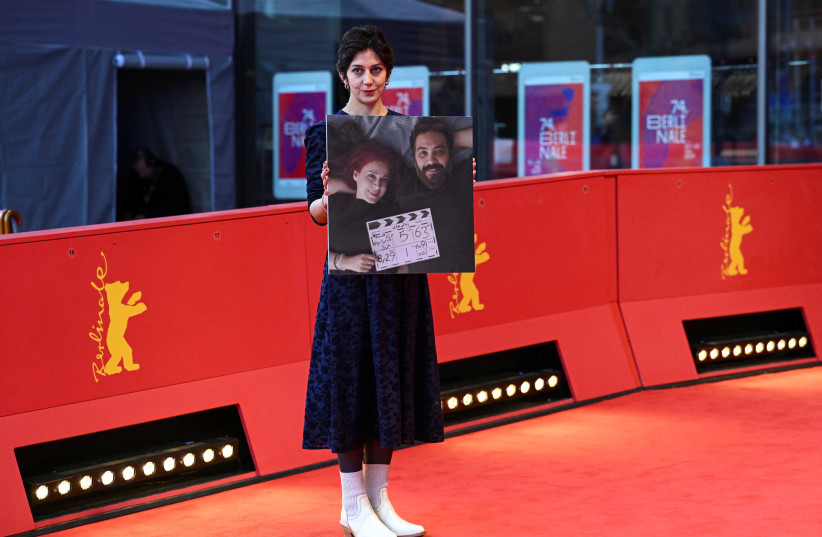BERLIN – The stars of the Iranian movie, My Favourite Cake, attended its premiere at the 74th Berlinale, the Berlin International Film Festival, and the audience applauded its gentle story of late-life romance, but its directors, Behtash Sanaeeha and Maryam Moghadam, were forbidden by the Iranian government from leaving the country.
Two empty chairs represented the Sanaeeha and Moghadam at a press conference and the movie’s star, Lily Farhadpour, read a statement the directors gave her.
“We feel like parents who are forbidden from even looking at their newborn child. We’re sad and we’re tired, but we’re not alone. This is the magic of cinema. Cinema brings us together. It is a window which opens up a time and a place where we can meet,” they said.
While some Iranian directors, such as Asghar Farhadi, two of whose films have won Oscars, have managed to make movies in Iran without incurring the wrath of the Islamic Republic, others, such as Saeed Roustayi, have been imprisoned.
My Favourite Cake, the latest movie by Sanaeeha and Moghadam, might sound like an apolitical movie that wouldn’t upset the government. It tells the story of Mahin (Farhadpour), a lonely widow, who meets a divorced taxi driver (Esmail Mehrabi), and how the two fall in love over the course of an evening. But the characters flout the regime’s laws in all kinds of ways: They drink wine and dance, and Mahin removes her hijab in front of him. In many scenes, Mahin is shown at home without her hijab, which censors do not allow Iranian filmmakers to show on screen.

There are explicit criticisms of many of Iran’s laws in the movie. During a walk in the park, Mahin sees the morality police arresting a young woman whose hijab does not properly conceal her hair and intervenes, convincing the police to let the young woman go. The two women discuss the terrors of the morality police and the young woman says she envies Mahin, who lived much of her youth before the Islamic Revolution and remembers going out in public without a hijab.
Referencing Mahsa Amini
While their conversation does not directly reference Mahsa Amini, the 22-year-old Kurdish-Iranian woman who died in Iranian police custody in 2022 for allegedly violating the hijab law and whose death sparked the “Woman, Life, Freedom” protests across the country, it reflects the spirit of this rebellion.
In their statement, the directors said, “For so many years Iranian filmmakers have been making their films under very complicated rules. It means that red lines have to be obeyed which when they’re crossed can lead to years of not being allowed to work. And it may lead to complicated court cases. It’s a painful experience that we have experienced many, many times in these years... In such a deplorable situation, we continue to try to depict the reality of Iranian society in our films. It is a reality that is most often lost or obscured by layers of censorship,” they wrote.
“We have come to believe that it is no longer possible to tell the story of an Iranian woman while obeying such strict laws as the mandatory hijab... Women for whom red lines prevent their true lives [from] being shown as full human beings. We’ve decided to cross all these restrictive red lines and we accept the consequences of our decision.”
The directors learned last fall that they were banned from traveling abroad and would face a trial for making the film. It has not been screened in Iran and there are no plans to show it there. Many are predicting the film will win an important prize at the Berlinale.
